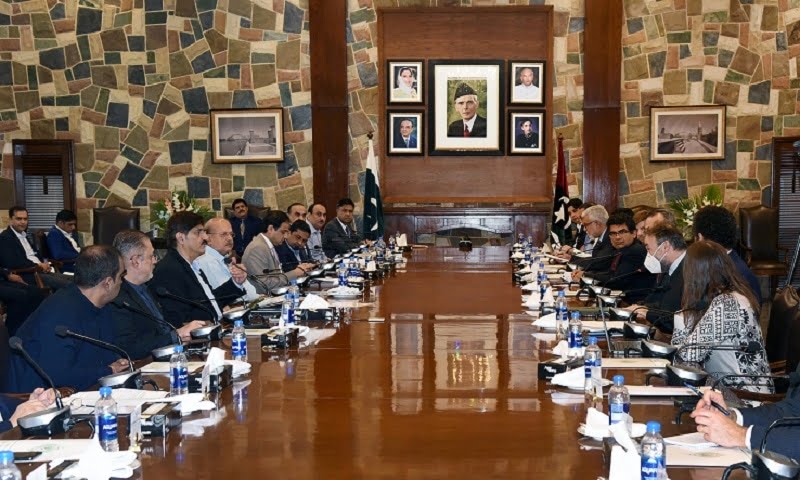Tahir Maqsood Chheena
The latest confrontation between coalition partners, the PML-N and PPP, over Punjab’s controversial canal projects and the distribution of flood relief aid, threatens to drag Pakistan back into the dark politics of division. At a time when the state is already grappling with resurgent militancy, economic fragility, and political volatility, the revival of interprovincial rivalries is a dangerous game that Pakistan can ill afford to play.
Punjab Chief Minister Maryam Nawaz’s defence of the proposed canals has become the flashpoint of this conflict. Her argument — that Punjab can use its water as it wishes, and that other provinces have no right to object — reflects a parochial tone reminiscent of her father Nawaz Sharif’s early politics in the 1980s. By threatening to confront Sindh’s leadership “at their doorsteps” if they resist Punjab’s projects, she has embraced a combative stance aimed at consolidating her grip on Punjab’s political arena. This may boost her party’s popularity among local constituencies, but the long-term costs to the federation could be devastating.
The PPP, on the other hand, has seized on this issue to cast itself as the guardian of Sindh’s rights. Its fierce reaction in parliament underlines just how fragile the coalition’s unity has become. The bitter exchanges between the two parties reflect the dangerous polarization brewing within the federation, especially on water — a resource that has historically been a source of conflict between provinces. The Council of Common Interests (CCI), Pakistan’s constitutional forum for resolving such disputes, has already intervened by suspending the projects until consensus is achieved. To ignore or sidestep this institutional mechanism would only deepen mistrust.
The canal issue is not an isolated dispute; it intertwines with the broader question of flood relief. The PPP’s proposal to route assistance through the Benazir Income Support Programme (BISP), given its infrastructure and nationwide outreach, was meant to ensure coverage. Yet, the suggestion was dismissed by the PML-N as political interference. While BISP may not have been perfect in addressing all losses, rejecting it outright demonstrated a partisan instinct rather than a spirit of cooperative governance. This tug of war over disaster relief reveals how humanitarian crises continue to be weaponized for political gain.
Maryam Nawaz’s approach seeks to reignite provincial pride in Punjab’s middle-class base, mobilizing nationalist passions to regain lost ground for her party. But such tactics, while effective in short-term mobilization, carry the risk of alienating other provinces and undermining the federation’s delicate balance. Pakistan’s federalism is already under strain from economic inequities, governance deficits, and ethnic grievances. Adding water politics and disaster aid to this combustible mix risks reviving old resentments that could weaken national unity.
History shows that parochial politics may consolidate provincial dominance but often at the cost of the federation. Nawaz Sharif’s rise in the 1980s and 1990s was built on similar rhetoric that secured Punjab but fueled perceptions of domination in smaller provinces. Today, Maryam Nawaz appears to be walking the same path — forgetting that Pakistan’s survival depends on cooperative federalism, not competitive provincialism. Her dismissal of Sindh’s concerns and combative rhetoric may play well to Punjab’s audience but risks creating lasting damage to her reputation as a leader of national stature.
The lesson is clear: Pakistan’s fragile democracy and federation cannot withstand politics that pits one province against another. Leadership must rise above populist impulses and act as custodians of national unity. The Council of Common Interests offers the constitutional space for negotiation; bypassing it undermines both law and trust. If coalition partners fail to find common ground, the federation itself becomes the casualty.
Maryam Nawaz must rethink her political strategy. By investing in cooperative federalism, acknowledging Sindh’s legitimate concerns, and ensuring disaster relief is handled with equity, she can secure credibility not only in Punjab but across Pakistan. Short-term gains should not be purchased at the cost of national cohesion. The politics of canals and floods must not be allowed to drown the federation.
















